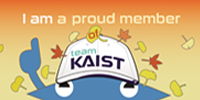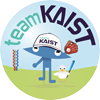

This year, I started out with fear. One year ago, while participating in the ICT education and Arduino appropriate technology project in Arusha, Tanzania, I saw that there were still many people in the world facing barriers to learning due to environmental and technological limitations. It was a moving experience to be one of the people working to break down these barriers. When I first heard that this year’s destination was Uganda, it came to my mind that Uganda was one of the places mentioned in a recent newspaper article about the dangers of malaria. I found myself hesitating even after a year of waiting for the next volunteering opportunity as I pondered going to a destination which bordered an Ebola outbreak region. There would even be a cultural performance in a church located in the slums, home to the urban poor and AIDS patients where water-borne diseases were rife. Would I be safe there?
However, it seemed to me that the barrier to learning would be even higher than in Tanzania. Unlike previous overseas volunteer projects conducted in well-equipped facilities for students, the Uganda project was for ordinary residents at a neighborhood church. There would be people even more desperate for knowledge. After some serious deliberation, I decided to join the Uganda project.
All we were given were a white tent installed on the bare ground and ten chairs. Conditions on site were even worse than my already low expectations. Pastor Amos joked that we would be baked like cookies in an oven by the afternoon if we conducted our lessons there. However, we were unable to find any other suitable place for our lessons. We began with the hope that it would be more bearable if we took sufficient breaks during lessons.
The heat of the equatorial sun combined with the heat from the old laptop computers to turn the inside of the tent into a sweltering greenhouse. Although we were only giving presentations as ICT education volunteers, we were drenched in sweat as if we had crossed a desert. This was not all. The power supply failed every 10 minutes on the first day of lessons, rebooting our laptops over ten times. A sudden torrential shower flooded the ground around the tent, and we scrambled to move the power extension cords to avoid getting an electric shock. We were constantly thrown into situations far beyond our expectations and preparations.
Our students came with a barrage of questions every lesson. What motivated us to keep going even amidst such poor conditions was the passion of our students. This was also what made the Uganda project more memorable than any other overseas volunteer projects. In particular, the residents of Group E who attended the Movie Maker team’s morning classes left a lasting impression on me. Unlike other groups composed of university students with personal laptop computers, this group was made up of residents of all ages. Among them, the elderly Mr. Kenneth seemed unfamiliar with the alphabet and the computer. However, he was the most attentive student and full of questions, picking up the unfamiliar program slowly at his own pace.
When the lesson ended, Mr. Kenneth came over with an old USB flash drive. “Could you pass me the installation file for the program we learned today?” He wanted to have a copy of the Movie Maker program in his flash drive. “After you teachers leave, I want to make sure to get a computer, install the program and practice on my own.” Mr. Kenneth’s Movie Maker studies will continue even after the ICH volunteer corps have left Uganda. Although he was slower than other students at the beginning, he never gave up, reaching the point of asking questions that were helpful to other students as well by the end of the course. His passion for learning made me reflect on my academic attitude at KAIST. To me, studying was simply a means to fulfill the requirements for graduation and obtain good grades. I had never thought about the significance and value of knowledge to my life.
The class that I want to skip today might be an opportunity that others are desperate to have. 3Although three weeks of lessons were much too short to fully teach our students how to use the Movie Maker program, I believe that they will be able to use the program perfectly someday, because they are driven with a clear goal for learning. Mr. Kenneth wanted to make a promotional video for the products made at the soap factory he worked in. He said that the other workers at the soap factory were eagerly awaiting his return, and he had to learn as much as he could during the course as he could not work during this period. Then there was an App Inventor student who was trying to make a service app for his restaurant business. Our Arduino students were able to construct an automatic bar gate for the church parking lot using an infrared sensor and motor module. While I felt proud that our education programs were able to make a real impact in their lives, I also felt I could have been of greater help if I had come with more in-depth knowledge. I could not let any of our classes go to waste.
Our students were driven by passion, taking a break from their livelihoods to seek learning in an oven-like tent. Their sense of purpose, dreaming of a better life through learning, was truly beautiful. They will not stop at just completing our program, but continue to explore the knowledge gained and seek ways to utilize them in their lives. They even vowed to pass on the knowledge to their friends and students.
Jacqueline Novogratz, CEO of Acumen, a non-profit impact investment fund, said that what we need to transform vulnerable groups into producers and consumers is not charity but self-reliance. Here’s hoping that education service provided by the KAIST ICT Volunteer Corps to Africa brings about self-reliance, a more valuable asset than charity. Going further, I hope that our students grow into our partners in the future. Their passion, which I felt strongly at every class, is the biggest reason behind my expectations that may seem too grand. I made it my goal to learn more and think about ways to effectively share the knowledge until the day we meet again as partners.
Perhaps we truly were like cookies in an oven as we taught and learned under the sweltering tent. Just as soft dough turns into tasty cookies after baking in a hot oven, our passion for learning will transform us into people creating a better world in the future. Here’s hoping that the 3 weeks of education service by the KAIST ICT Volunteer Corps to Africa helps create a better world, and becomes a starting point for further consideration of ways to make the world better as I conclude this account of my memories from Uganda.





